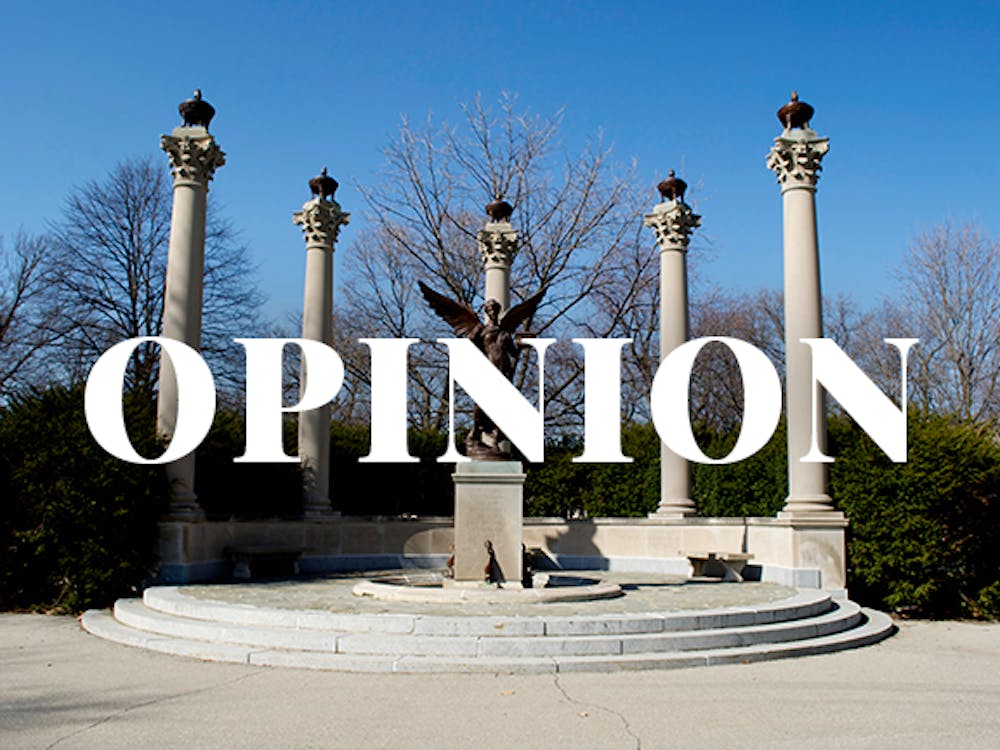Crystal Pennell is a sophomore telecommunications journalism major and writes "Over the Rainbow" for The Daily News. Her views do not necessarily agree with those of the newspaper. Write to Crystal at capennell@bsu.edu.
Black Panther was everything promised from the trailers and the reviews. Through visuals, character development and deeper storytelling, this movie gives people a chance to take a closer look at American society.
Visually, it provided the action and effects needed to make this movie as successful as it is. Not to mention, the visual experience of the technology that Wakanda has to offer was truly amazing.
Besides the fact this was a superhero movie and the story line sticks close to the comic, there is an underlying message throughout the movie: the concept of unity.
Off the bat, you understand the dynamic of Wakanda: unity under one nation and a love for its one nation. Which is all good and well until the movie goes into deeper layers.
Erik Killmonger is the “villain” in this story; however, his actions show a struggling character attempting to do good but becoming the antagonist through his misguided ways.
You see the backstory of how Killmonger grew up in Oakland, California. In a sense, Killmonger represents the struggle and hardships of African Americans all over the world, but mostly in the U.S. Killmonger’s story represents a regular black kid growing up struggling to survive, to get an education, to get somewhere in life, and the hardships that come with it when you don’t have the resources needed. This living type is relatable to most and recognized by all.
In almost all movies that involve black people, the community is represented as poor and uneducated. They are seen as thugs. But society is changing.
“I think the amount of creativity that could be nourished, whether its intellectual or what have you, I think that young folks and old folks, seeing a film, about a character and a family, and a story that is so unique, and really about being black and independent, I think it will change the way people communicate. There’s going to be some barriers broke,” said Christopher Moore, assistant director of Ball State’s Multicultural Center.
This movie is not only a representation for the people in these communities, but it is also an eye opener for those who are not in it. A conversation could start that has been trying to be heard for years now: one about the equal right to resources and the change that needs to happen in lower income communities.
The character of T’Challa (the Black Panther) is what would be considered the ideal to black people, the equivalent to a superman or ironman, except he’s no alien or just a rich/smart guy. He’s the king. He’s lived his whole life to reach this moment, and everyone in his rule has the resources needed to be great, intelligent, strong.
This movie offers a new outlook on who young black kids can dream to be. As I mentioned before, these young kids are being negatively reinforced into who they are seen as by the world. But this movie gives children a whole new perspective.
“I think it will help with a positive outlook for kids because he is the king, his sister is the princess and she’s the smartest person in the world; that kind of gives them the outlook that black people can be smart and they can be royalty. It's positive and uplifting in the community as a whole,” said Ball State sophomore Alon Moore.
As for future movies, we all hope to see more of the same dynamic Black Panther gave us this year: representation to all and a positive outlook for underrepresented communities.
“There is a shift happening, as it relates to appreciating Black Culture and artistship and film. I don’t know where we need to be at, but we’re getting there,” Christopher Moore said.





